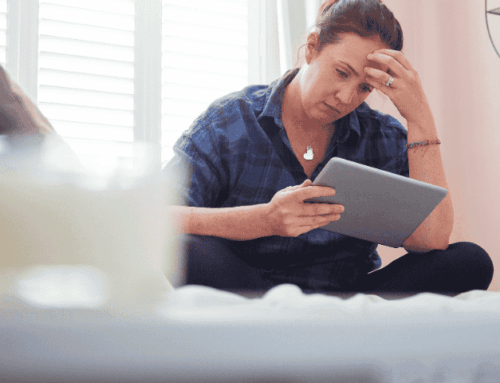Debt can be overwhelming. It’s not just a financial strain, it’s an emotional strain as well. Debt can worsen anxiety and make us feel hopeless. It’s very easy to get caught up in debt and not see the light at the end of the tunnel. But there is a way out, for anyone and everyone.
Let’s take a look at buying a house, for example. It’s a common goal; an investment that makes sense for a lot of people. Home ownership also comes with pride and plans for the future. The idea of buying a house though seems far-fetched to most people in debt. Saving for a down payment and improving your credit score takes time, but with the right plan in place you will get there. This article explores how to purchase a home, while in debt.
WHY IS YOUR CREDIT SCORE SO IMPORTANT?
Your credit score is like a financial report card. It’s a number between 300 and 900; the higher the better. When you have a high credit score, it means your debts are (either completely, or close to being) paid off, so lenders see you as low risk. That makes you eligible for the best mortgage rates. As your credit score starts to drop, the risk you pose to lenders increases, along with the mortgage rates you’re offered.
Canada has two major credit bureaus; Equifax and TransUnion. They assign your score based on your debts and history of paying them off. You can check your credit score by visiting one of those bureaus. There’s a myth that says checking your credit score lowers your credit… That isn’t entirely true. Checking your own credit score doesn’t impact the number. However, if an organization or lending institution checks your credit, then it can temporarily impact your score.
It is important to keep tabs on your credit score. As we mentioned, your mortgage rate is dictated by your rating. That can have serious consequences on your monthly payment. Let’s say you wanted to buy a $500,000 home in South Windsor and you’re able to put 5% down. If you have what’s considered good credit (a score above 680) it’s likely all the banks and lenders will be happy doing business with you. You could end up with a mortgage rate of 2.4%, making your monthly payment $2,188. However, if you have poor credit (a score below 600) then you could end up with a mortgage rate of 10% (or higher). That will make your monthly payment $4,419.
In the above scenario, the person with poor credit is paying an additional $2,200 a month. That money isn’t being applied to the principle to help pay down your mortgage, it’s going to the lender.
HOW DO YOU IMPROVE YOUR CREDIT SCORE?
It takes time, but there are proven methods to improve your credit score.
- PAY DOWN YOUR CREDIT CARDS: A large balance and a history of making only the minimum payments will cause your score to drop.
- AUTOMATE YOUR BILLS: This ensures they’re paid on time, which not only eliminates late fees but also boosts your score.
IS IT ACTUALLY POSSIBLE TO BUY A HOME WHILE IN DEBT?
The short answer; yes. But as you saw from the possible mortgage rates, you’ll be doing yourself a disservice if you don’t do any prep work first. These steps will help you be in a better position to receive a better mortgage.
- The above tips for improving your credit score are a great start. The interest charged by credit cards is usually extremely high, adding on to your debt. That means it makes more financial sense to pay down the debts before you start saving for your down payment.
- Saving for your down payment has a couple of benefits. You’ll be able to reduce your potential mortgage payments and know what your budget is like for making those payments.
- Hire a financial wellness coach. They can help improve your financial literacy, set goals such as buying your home, and work with you on your budget to make those goals come to fruition.
- If at this point the debt is still overwhelming, meeting with a Licensed Insolvency Trustee such as Andrea Orr can provide other options such as a consumer proposal. A consumer proposal can reduce the amount of debt you’re required to pay, while offering the same protection as bankruptcy. However, it doesn’t have the same long-term effect on your credit rating, which aids in your goal to buy a home.
If you have questions about consumer proposals or could benefit from the budgeting assistance that comes from a financial wellness coach, don’t be shy about reaching out. We’ve helped many families in Southwestern Ontario eliminate their debt, improve their credit score, and purchase their home.









Leave A Comment
You must be logged in to post a comment.